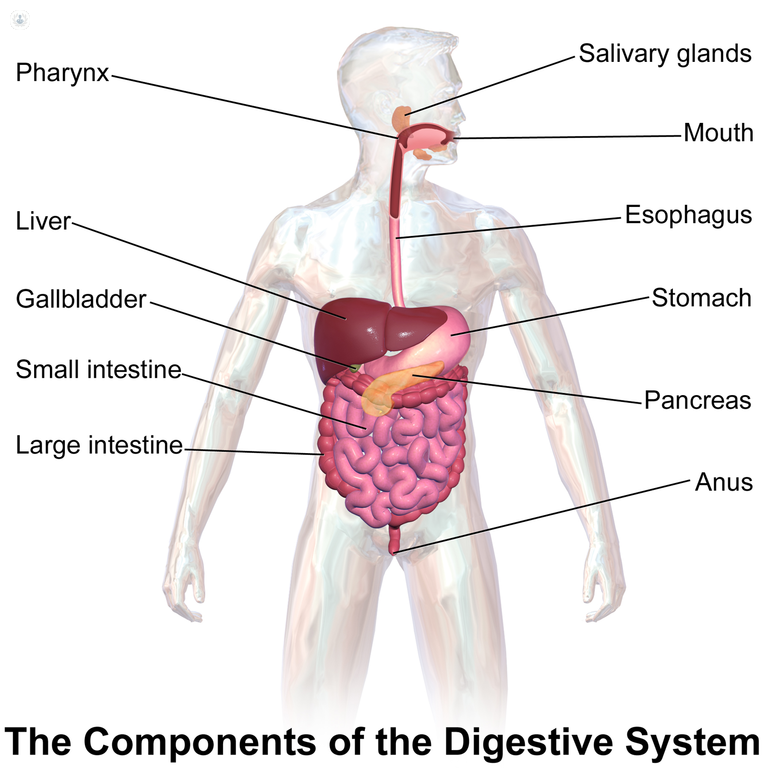

What are digestive diseases?
The digestive system is a tube made up of the mouth, oesophagus, stomach, small intestine and large intestine, which leads to the back passage. It also contains organs such as the liver, gallbladder, and pancreas.
Each part of this system has a different purpose, such as breaking down food, absorbing nutrients, or removing toxins or alcohol.
A digestive disease, or disorder, involves something going wrong with one of the organs in this system.

Digestive diseases can include:
- Problems with the oesophagus – including acid reflux, achalasia,
- Problems with the stomach – including gastro paresis, stomach ulcers, and stomach cancer
- Problems with the gallbladder – including gallstones. and acute cholecystitis
- Problems with the pancreas – including pancreatitis and pancreatic cancer
- Problems with the liver – including liver cysts and liver cancer
- Problems with the intestines – including coeliac disease, dysentery, Hirschsprung's disease, irritable bowel syndrome (IBS), and ulcerative colitis, diverticulitis, colon cancer, and polyps
- Problems with the rectum – including, anal fissure, anal fistula, and haemorrhoids
- Problems with the system as a whole – including Crohn’s disease
- Issues generally related to dietary problems – including constipation, indigestion, flatulence, food intolerances, and lactose intolerance.
What are the symptoms of a digestive disease?
Symptoms of a digestive disease can include:
- bloating
- constipation
- diarrhoea
- stomach pain
- weight gain or loss
- heartburn
- incontinence
- nausea or vomiting
What type of specialist treats digestive diseases?
A gastroenterologist is a type of consultant who specialises in diseases in the digestive system. Depending on your condition, however, they may not be able to make a diagnosis on their own, and may refer you to other specialists, such as radiologists, to conduct further tests.
